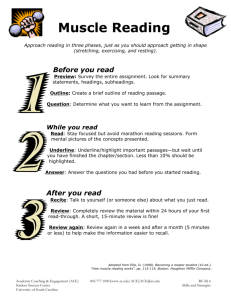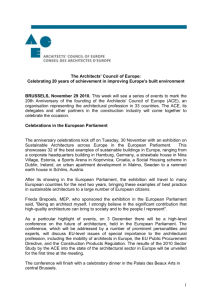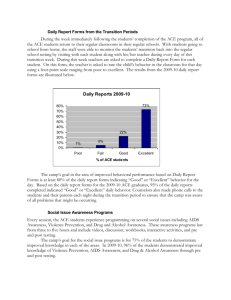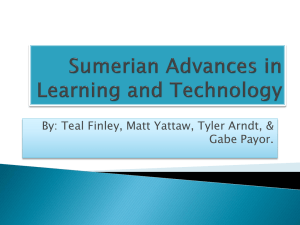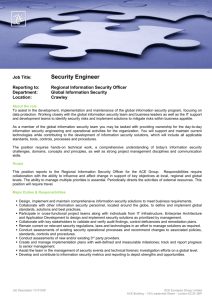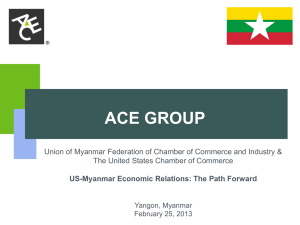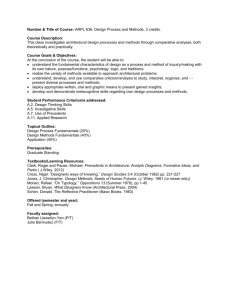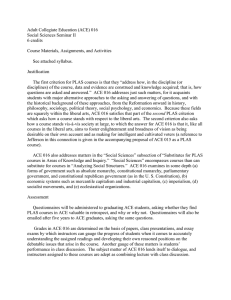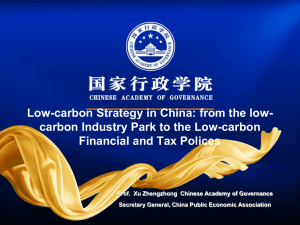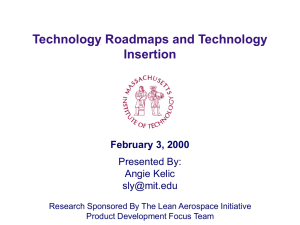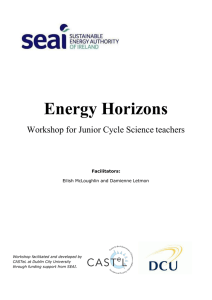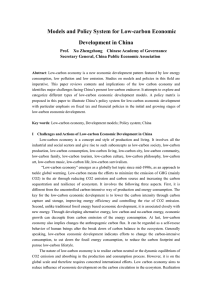ACE-OwenLewis020411
advertisement
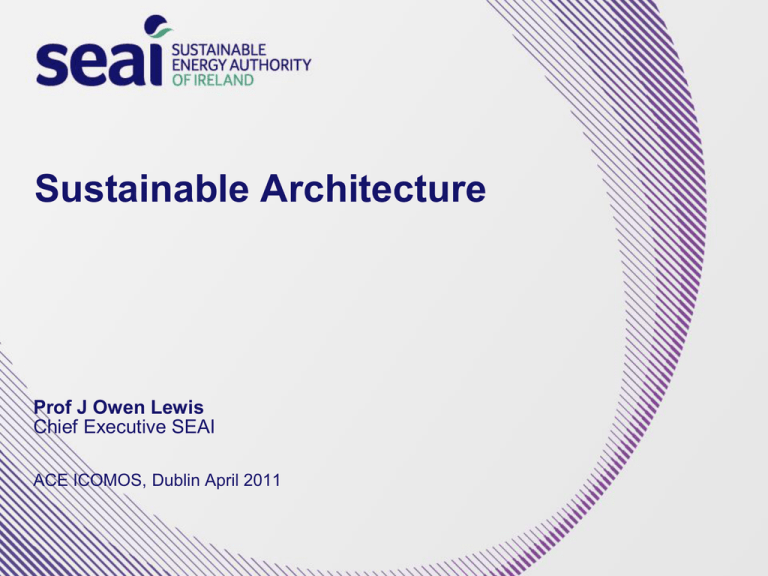
Sustainable Architecture Prof J Owen Lewis Chief Executive SEAI ACE ICOMOS, Dublin April 2011 The Shared Challenge International Energy Agency: revolution in energy technologies needed Key SEAI Priorities • Energy efficiency first: implementing strong energy efficiency actions that radically reduce energy intensity and usage • Low carbon energy sources: accelerating the development and adoption of technologies to exploit renewable energy sources • Innovation and integration: supporting evidence-based responses that engage all actors, supporting innovation and enterprise for our low-carbon future Preparing the next industrial revolution • Balanced portfolio and risk mitigation as important for Ireland as for US –no magic bullets • High fossil fuel dependence means Ireland must transition more quickly • Provide pilot scale demonstration and deployment facilities for emerging technologies • Ensure systems thinking –social and economic as well as technical dimensions • Aim to deliver business solutions for others with poorer clean energy resources – Exporting clean energy within EU – Hosting energy-intensive enterprise Energy technology roadmaps Residential, Bioenergy, Ocean Energy & Smart Grid – Facilitate the energy and climate policy analysis required to fast-track the transition to low-carbon energy technologies – Build a deeper understanding of what has to be done when and by whom; identify priority actions for governments, industry, business, finance and civil society – Evaluate future technology impacts – Provide a more secure context for investment Total residential CO2 emissions Average dwelling energy intensity Greece Spain Denmark Latvia Finland Energy Performance in Buildings Directive Netherlands Retrofit programme aims • Unlock significant energy efficiency potential by enabling owners and occupiers of existing buildings to lead more energy efficient lives • Generate employment • Improve energy security • Address accredited supply chain, skills, business models • Engage a wider range of market players under one brand • Explore new ways of financing energy efficiency; promote whole life appraisal The Historic Retrofit Challenge • Information -awareness, motivation • Technology –durable options, risks • Heritage –authenticity, historical record • Skills –knowledge, expertise, experience, R&D • Perceived cost effectiveness • Finance –availability; innovation • Delivery -destruction or integration; new business models Conclusions • Imagine the future • Recognise paradigm shift – Consume v re-use – Working with nature • Need for action – Targets, roadmaps don’t self-implement – Lots of work –more than most imagine • Focus on – Systems thinking – Quality and innovation – Enterprise development • Connect industry, agencies, Government ACE Political Statement Sustainable Architecture & Environment -Energy Efficiency The ACE commits itself to An active promotion of the principles of sustainable development The formulation of proposals for concrete action Contribute to the implementation of agreed EU proposals, in terms of that which concerns it directly, as well as in conjunction with other interested organisations. Specific early measures will include The inclusion of energy and environmental performance information as an assessment criterion in all architectural competitions and competitive selection processes The encouragement of similar performance information to accompany all published architectural reviews A recommendation that such information becomes an additional criterion in selection processes for public architectural awards.
